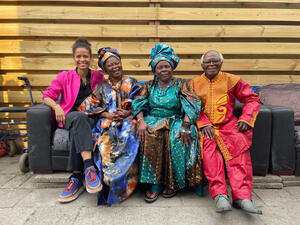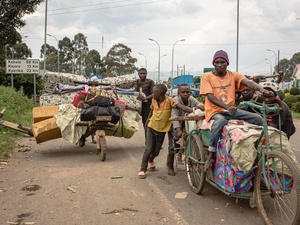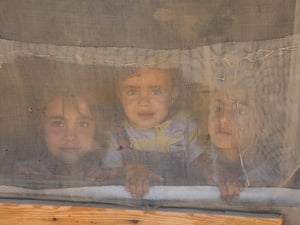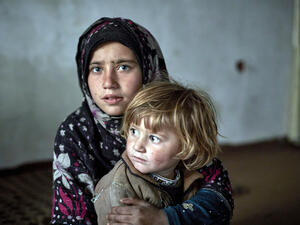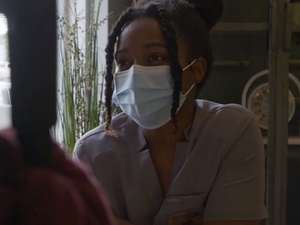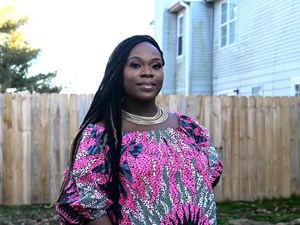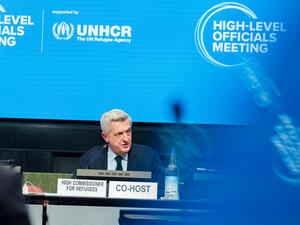Q&A: Working hard to find new homes for refugees around the world
Q&A: Working hard to find new homes for refugees around the world
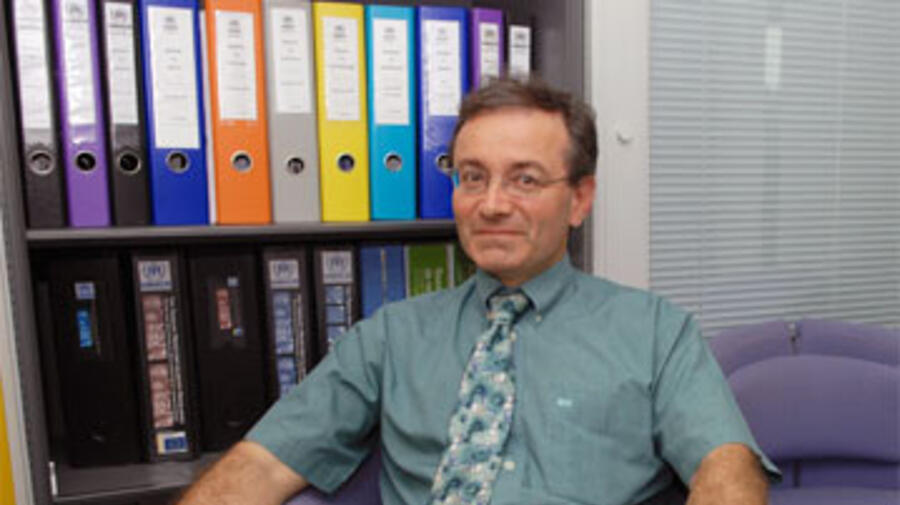
Vincent Cochetel, Deputy Director of UNHCR's Division of International Protection Services.
GENEVA, July 20 (UNHCR) - Vincent Cochetel received a lesson in human suffering under the most extreme conditions. Nine years ago the modest Frenchman was abducted in North Ossetia by Chechen gangsters and held prisoner for 317 days before Russian troops rescued him in a bloody shoot-out. That experience has had a profound effect on his approach to life and work. He was determined to return to work at the UN Refugee Agency as soon as possible after his ordeal and today is Deputy Director of UNHCR's Division of International Protection Services. He specializes in resettlement and refugee status determination issues. Cochetel talked earlier this week to Web Editors Haude Morel and Leo Dobbs. Excerpts from the interview:
What is resettlement and who is entitled to it?
Resettlement is one of the durable solutions that UNHCR promotes. [The others are voluntary repatriation and local integration] It's often seen as the last one, which I think is maybe wrong because in some cases it's the only option. When do we use resettlement? Sometimes its just to save the life of some refugees - you have 24 hours, 48 hours to move someone from one country of asylum to another.
Sometimes we use it as a durable solution because there is no possibility of local integration or there is no possibility of voluntary repatriation. This is often the case in protracted refugee situations. Sometimes it is used in parallel with other durable solutions or/and as part of a package deal. We try to target the most vulnerable or the people who have the most acute protection problem and we try to use this solution strategically. That means the use of resettlement in a way where it creates protection dividends or protection benefits for other refugees who are not going to be resettled. So basically we try to enlarge the "space for asylum" by using a resettlement strategy.
Those entitled to it include refugees who are not asylum seekers and, in some cases, stateless people. We have criteria in terms of protection vulnerabilities to prioritize resettlement submissions.
Do many countries provide settlement? How many people are resettled each year and which are the most popular destinations?
If we count government-assisted refugee resettlement programmes we have about 70,000 places of resettlement per year, to which you can add roughly 15,000 private sponsorship programmes. So a total, roughly speaking, of 85,000 places of resettlement available worldwide with three countries taking the lead - the United States, Australia and Canada.
Resettlement is not a lottery; UNHCR is not a travel agency - there is that perception sometimes. People come to us and say, "I want to be resettled to the States." But we look at whether you are eligible for resettlement and if you are - unless you have a very, very close relative in a resettlement country - we decide where you go. It could be Chile, it could be Denmark, it could be Iceland, but it's not going to be up to the refugee to decide.
For next year, we have estimated the number of refugees in need of resettlement at 154,000. We have a maximum, let's say for states, of 65,000 places. Choice is difficult, so we would look at the cases with more protection needs. Vulnerable cases - women at risk, people with medical problems.
There are about 17 countries with resettlement programmes, but some countries are taking a small caseload every year. Portugal announced three weeks ago that it will become a resettlement country. They have agreed to take 30 cases a year. It's not much, but it's already a positive demonstration of international solidarity. You have other big European countries which have no resettlement quota at all. We are trying to push a larger number of countries to engage and we have had some positive initial discussion with Switzerland, Slovenia, Hungary, Czech Republic, Italy, Mexico and other countries.
How long does it take to process a resettlement case?
On an emergency basis, it can be done in one or two days.... For some cases, unfortunately, it takes longer. In some cases it takes three years for them to be resettled because the case is complex. Countries might have doubts about the family composition and may impose DNA testing to make sure that the children are really the children of the principal applicant.
Sometimes you have security constraints. Law enforcement agencies after 9/11 have tended to be more attentive to all categories of foreigners entering resettlement countries, this also affects refugees. Sometimes the security agencies take a lot of time for security clearance, for medical clearance. But on average, I would say it takes between five and eight months.
Why is it taking the US so long to accept Iraqi referrals?
The Americans don't have a quota per se. We had some sort of a notional target for this year which was to refer 7,000 Iraqis by the beginning of June. We have exceeded that target; around 8,000 cases have been submitted to the US. Very few have left because referrals were made after the spring and the US security clearance is often taking a long time, still we are hoping that at least 4,000 to 5,000 among these refugees will leave by the end of this year and more next year.
The resettlement process can be abused. How do you tackle corruption?
First we need to make a more dynamic use of our registration tools.... Wherever necessary, we should be able to add a biometric component to the data registration. It is done only in a very few countries ... but otherwise, we are not equipped with this biometric tool. We are looking into that. There are significant costs implications, but certainly in terms of system we should try to do better.
Then we are trying to partition the decision-making - the people involved in registration are not those involved in status determination and not those involved in resettlement consideration. And for those involved on the resettlement side, a decision is not made by one person - the file has to go between different checks and controls before it is sent to a resettlement country. You do not have a risk-free system, but what we are trying to do is to minimize the potential for corruption and fraud. We also have a senior anti-fraud expert here in Geneva who provides support to key operations.
We do not have a 100 percent risk-free system - that does not exist. But we have trained managers and our protection staff in the field on fraud awareness and I am happy to report that in general the sort of cases of fraud we see are more external frauds. It is not fraud caused or initiated by UNHCR staff, it is more initiated outside by brokers, middle men who pretend that they have some sort of influence in the decision-making process within UNHCR.
They are more difficult to catch, because in order to put an end to this sort of phenomenon you need the full support of countries of asylum. Some officials of the countries of asylum may sometimes be involved in fraudulent practices.
Tell us about your experience as a kidnap victim
I was the head of the sub-office in [North Ossetia capital in the Russian Federation] Vladikavkaz, where I was managing the UNHCR operation in the North Caucasus. One night I was kidnapped at my home. I had a bodyguard with me, but it was a well-planned operation. It was far away from Chechnya, but when they want to get you they get you.... They are a very well structured, hybrid mafia group who resort to this sort of criminal activity in order to finance political groups.
They took me to Chechnya in the trunk of a car for three days and in Chechnya I was in different places of captivity, in underground cellars. It is difficult to describe this isolation. Ten minutes of light per day. You have to constantly create images in your mind. That, I found the most difficult. It's not physical violence - at least physical violence is a form of dialogue. Isolation, total darkness, handcuffed to a bed. You can just move a bit by your bed, but you have to spend 23 hours and 50 minutes alone in the darkness.
I was held for 11 months. I was quite lucky because I was released four days after four other hostages were beheaded.... I was released by a special commando operation set up by the Russian authorities at the border between Ingushetia and Chechnya. It was a violent action.
What impact did the ordeal have on the way you look at life and work?
I've learned a lot. I've learned that things that matter in life are not that many. I've learned to enjoy every minute of life and there is no need for any planning for tomorrow, tomorrow might not come.... I think it's important to try to give what you can give every day without counting, because the day you are in a situation where you are not so sure you are going to make it through, you regret a lot of things.
I think it was important for me to start working. I had to spend some time in hospital.... I had to reconstruct the body and the mind, but after three months I was back at work. It was important to go back to work, first, as a form of occupational therapy and, second, to prove to myself that I could work again, that they had not taken that away from me.
I think I developed a better listening capacity vis-à-vis refugee situations. I was reassigned to Egypt and when I was interviewing victims of slavery in Sudan - people that have very peculiar body behaviour, they are submissive and they don't look at you - I could identify to some extent with those people. I could relate better to some of the things I was hearing from refugees and I think that helps also to be better connected with their story, with their protection needs and their need for help to reconstruct a future.



